Dishwashers are an indispensable domestic helper. However, it happens to all of us – the dishes are not well cleaned, and we have no explanation why. Well, there are some mistakes that you probably make when loading the dishes into the machine, and you’ll find a list at the end of this article. But this leads us to the main question: Do you know what’s the proper way to load a dishwasher?
Do You Need to Pre-Rinse Your Dishes?
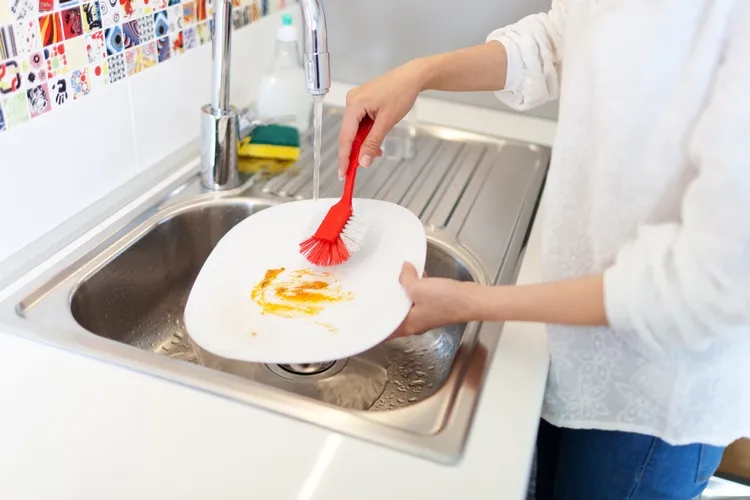
Image: Ana Blazic Pavlovic/Shutterstock
Why is it important to know how to load dishes into the dishwasher? Because that affects not only the way your dishes look but also the proper functioning of the device as well as its service life.
Do you need to pre-rinse your dishes before loading them into the dishwasher? This question leads to many disputes. You will find opinions supporting both. It’s true that some models have a pre-rinsing cycle, but older machines don’t. Another factor to consider is whether you’ll wash the dishes immediately or whether they’ll sit and wait for several hours (from lunch until dinner, for example) before being washed.

Image: Chay_Tee/Shutterstock
So, yes, you can skip rinsing, but do scrape any food residue before loading the plates on the shelves and compartments of the dishwasher. Use paper towels or napkins, a damp sponge, or a rubber spatula. Scraping food residue will prevent the clogging of filters and drains.
Also read: Post New Years Eve Cleaning Checklist to Get the House in Order Easily
What’s the Proper Way to Load a Dishwasher? How to Stack Plates?
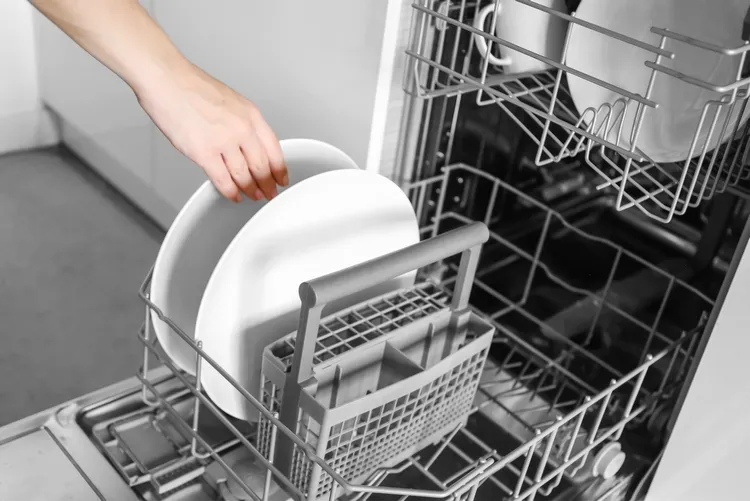
Image: RaspberryStudio/Shutterstock
Depending on the size of the plates, they can be placed in one of the trays – on top or at the bottom. Generally, large and medium-sized plates, including soup plates, are placed in the lower section. Make sure that the dirty side is placed toward the center of the machine at a downward angle. This will guarantee 100% water access to the dirty dishes.
Place Cups and Glasses in the Dishwasher Properly
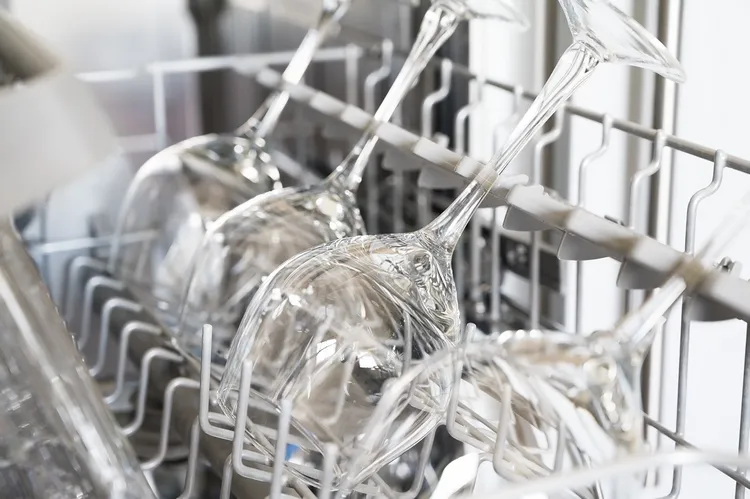
Image: piksik/Shutterstock
Remove any leftover tea, coffee grounds, wine, or any other beverage from glasses, mugs, and cups before loading them in the dishwasher. Place them upside down on the top rack. Avoid placing glasses too close together, as they can break. Small bowls and plates can also be placed on the top rack.
How to Load Cutlery in the Dishwashing Machine?
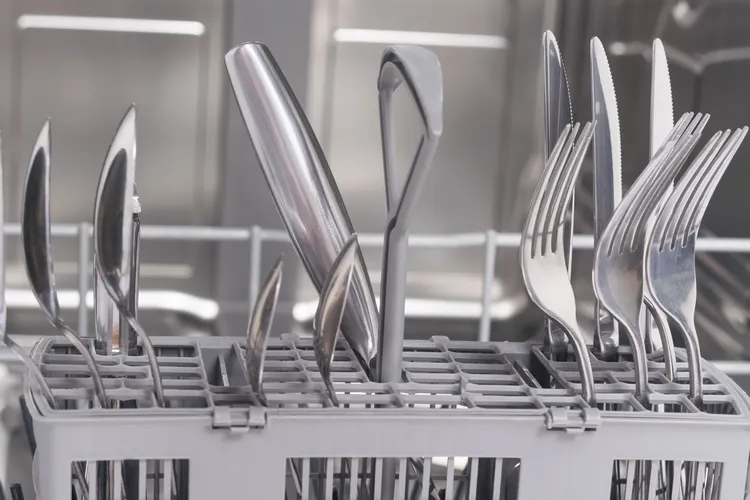
Image: Aleksey Kurguzov/Shutterstock
The latest dishwasher models have an upper tray for cutlery where it is laid horizontally. However, most dishwashers are equipped with a special basket for cutlery with a grid on the top, where spoons and forks are placed in separate cells with handles downwards. Knives are ALWAYS placed with handles upwards. You will be surprised how many people put dinner knives with the blades upwards. This is dangerous, and you do not want to get injured while loading or unloading the dishwasher, do you? Do not load sharp or ceramic knives into the machine. You risk blunting the blades.
Where to Place Cookware?
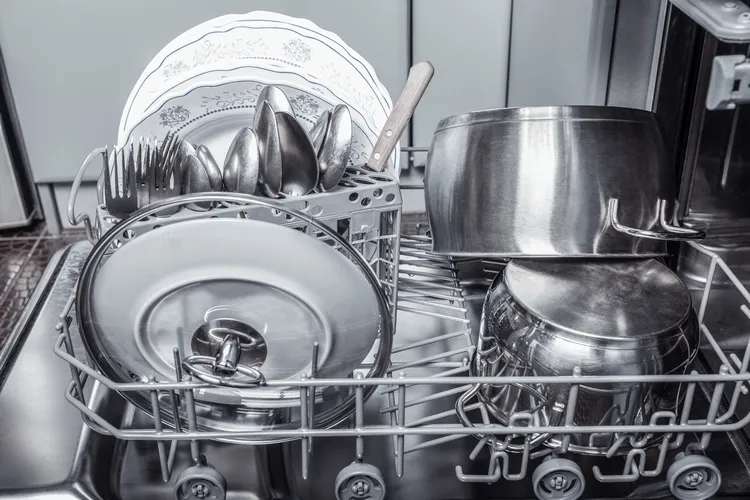
Image: Yulia_B/Shutterstock
Large pots, pans, baking trays, etc. are placed in the lower rack facing downwards or at a slight angle. It is better to wash them separately from delicate dinnerware, glass, porcelain, crystal, etc. Smaller but longer utensils like ladles, spatulas, and tongs can be placed flat on the upper rack.
Also read: How to clean the dishwasher and disinfect it? Tips and home remedies that work
Common Mistakes to Avoid When Loading the Dishwasher
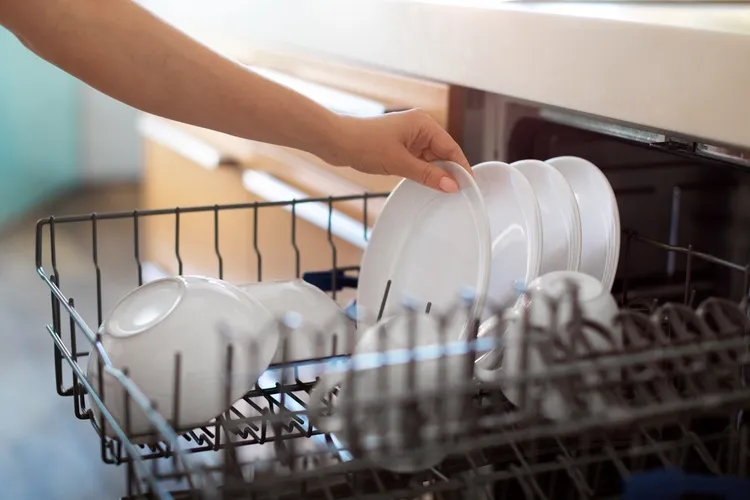
Image: Prostock-studio/Shutterstock
Now that you know the proper way to load a dishwasher, let’s see the most common mistakes to avoid.
Overloading
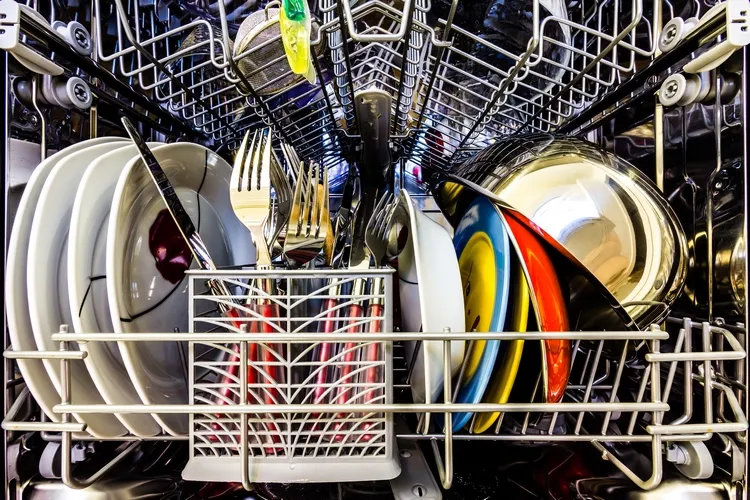
Image: Bega/Shutterstock
Overloading is one of the most common mistakes that people make. Your dishwasher has a certain capacity. The water needs enough space and access to the dishes to do its job. If you overload it, your dishes won’t get washed properly.
Blocking the Jets
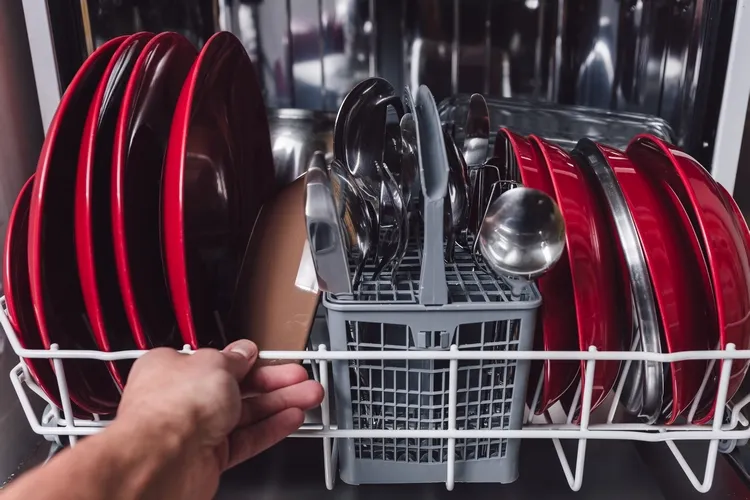
Image: Castro Cicero/Shutterstock
Before starting the machine, make sure that the dishes are not blocking the spray arms, as this can interfere with the entire washing cycle. The jets that spray water are positioned on the arms, and blocking them can affect the efficiency of the dishwasher.
Choosing the Wrong Detergent
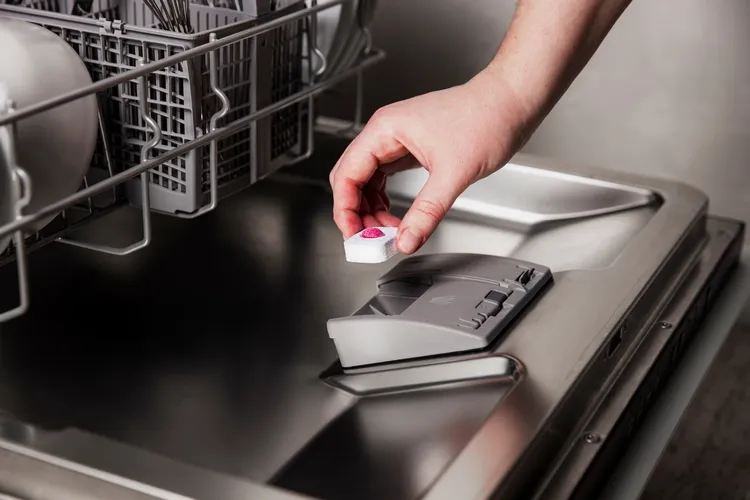
Image: Olena Ivanova/Shutterstock
The market offers a wide variety of dishwasher detergents – liquid, powder, or gel, being among the most popular ones. Make sure that you buy detergents that are suitable for you. What to consider when choosing a dishwasher detergent? In the first place, the type of water. Is your water hard or soft? Are you washing heavily soiled dishes? Some detergents are stronger and more suitable for cleaning heavily soiled dishes, others are gentler.
Also read: How to Fix Dishwasher Rack Rust?
